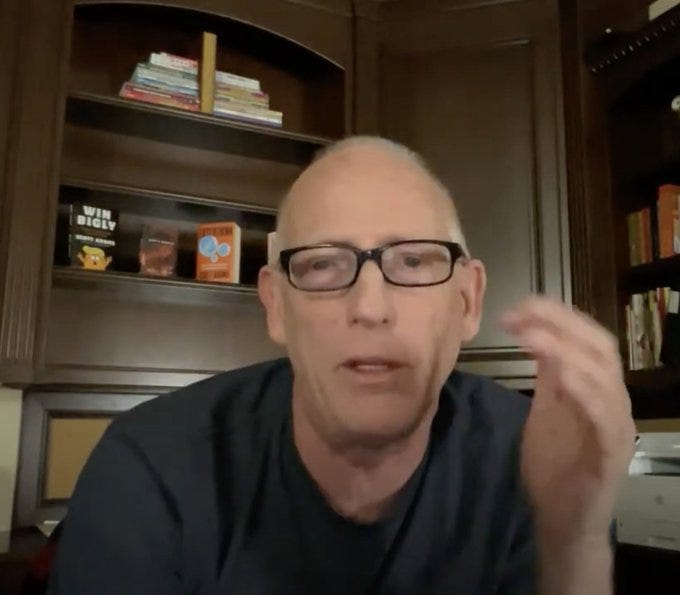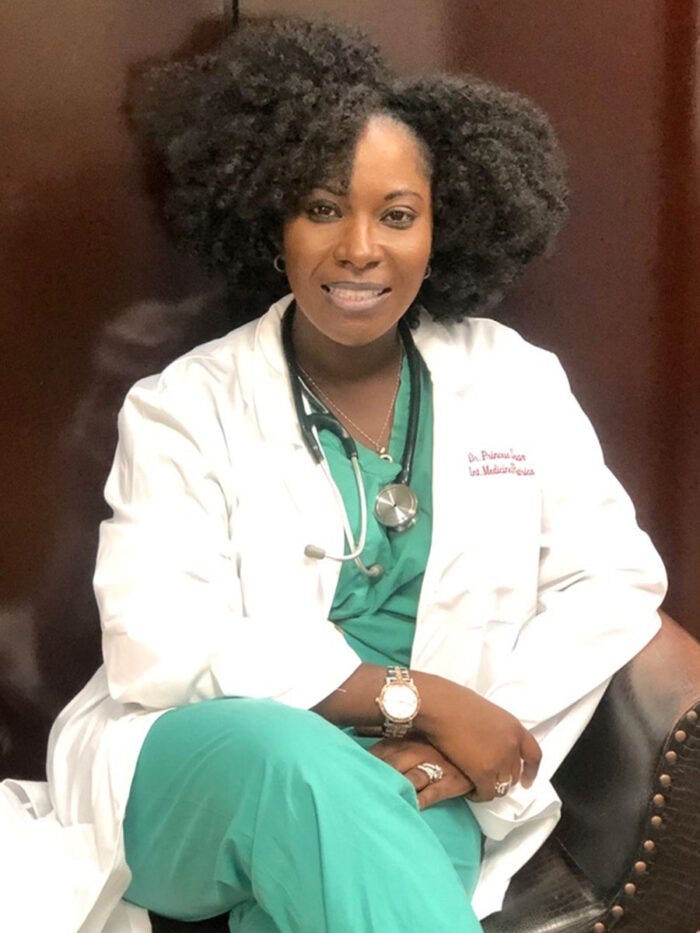Scott Adam and the view from DILBERT
A. very sad view of inevitably
George Wallace, former governor of Alabama once pronounced this infamous statement upon taking the oath of office on January 14, 1963, “In the name of the greatest people that have ever trod this earth, I draw the line in the dust and toss the gauntlet before the feet of tyranny, and I say segregation now, segregation tomorrow, segregation forever.”
Let’s leap forward to 2023. In another but less well-known statement from Scott Adam, the author of the famed syndicated "DILBERT” cartoon. The cartoon appears in multiple print magazines, and also now has its own cyberspace.
Scott Adams leaps into the fray with a recent Twitter keynote address. This is a must-read for every thoughtful person, black, white, or yellow
Scott Adams: White people need to "get the fuck away" from Black people, they're like "a hate group"
He does not make this statement without some basis in reality (from my perspective)
Adams goes on to say; So I think it makes no sense whatsoever as a white citizen of America to try to help black citizens anymore. It doesn’t make sense. Because there’s no longer a rational impulse. And so I’m… I’m gonna, uh, I’m gonna back off from being helpful to black America, because it doesn’t seem like it pays off. Like I’ve been doing it all my life, and I’ve been… the only outcome is I get called a racist. That’s the only outcome. [cackles] It makes no sense to help black Americans if you’re white… it’s over..
So, if nearly half of all blacks are not okay with white people, according to this poll. Not according to me. According to this poll. Uh, that’s a hate group. That’s a hate group. And I don’t want to have anything to do with them. And I would say, you know, based on the current way things are going, the best advice I would give to white people is to get the hell away from black people. Just get the fuck away. Wherever you have to go, just get away. Because there’s no fixing this. This can’t be fixed. Right? This can’t be fixed. You just have to escape.
So that’s what I did, I went to a neighborhood where, you know, they have a very low black population, because unfortunately, you know, there’s a high correlation between the density, and this is according to Don Lemon, by the way. So here, I’m just quoting Don Lemon when he notes that when he lived in a mostly black neighborhood, there are a bunch of problems that he didn’t see in white neighborhoods. So even Don Lemon sees a big difference in your own quality of living, based on where he lives and who is there.
So I think it makes no sense whatsoever as a white citizen of America to try to help black citizens anymore. It doesn’t make sense. Because there’s no longer a rational impulse. And so I’m… I’m gonna, uh, I’m gonna back off from being helpful to black America, because it doesn’t seem like it pays off. Like I’ve been doing it all my life, and I’ve been… the only outcome is I get called a racist. That’s the only outcome. [cackles] It makes no sense to help black Americans if you’re white… it’s over. Don’t even think it’s worth trying. Totally not trying.
I write about this because I have often thought the same but have hesitated to make myself look like a fool which I think Scott Adams has done. It became obvious to me Scott Adams has few if any close contacts with anyone of color. And that makes a big difference. He seems to be able to deal with people of color as long as they are not in his neighborhood. That thought goes along with an older philosophy during the days of integration. It was proposed that separate but equal was as good as integration.
My philosophy of advocating for minority groups comes from being a Jew. I instantly identify with the downtrodden, the weak, and those who appear to be unable to represent themselves adequately due to socioeconomic, religious prejudice, and/or racial ideas. Then again I can identify with black physicians and women. Our common experience in healthcare training and work bonds us uniquely
I am always advocating for women, abortion rights women in medicine, and doctors of color.
Of note, I came across some discrimination issues in several health systems involving women, and women of color (physicians). The California Health Care Foundation recently published
A Perspective: Racism in Academic Medicine Is Hindering Progress Toward Health Equity
The report expands on several cases where actions taken against women or women physicians of color are analyzed.
Princess Dennar, MD, Tulane University School of Medicine’s first and only Black woman residency program director. She was suspended from her job soon after filing a race-discrimination lawsuit against the school. The case has been settled.
Institutional race discrimination against Black physicians and trainees is depressingly common, regardless of the medical, economic, or geographic setting. In California, Omondi Nyong’o, MD, a pediatric ophthalmologist in Palo Alto, and several other Black physicians have lodged complaints and filed lawsuits against Sutter Health, alleging racial discrimination at the large Sacramento-based nonprofit health system.
A growing number of Black physicians are speaking out. Uché Blackstock, MD, wrote an article in STAT about “toxic and oppressive” conditions that prompted her to leave a faculty position in an academic medical center. A study entitled
Very often academic insufficiency is used to discriminate against a minority physician holding to the idea that a person of color has a less prestigious background or education as compared to peers. These factors also apply to Hispanic students. Paradoxically students of Asian ethnicity are often given a higher ranking. In the UC system engineering, and medical schools rank Asians high.
Several decades ago the medical system recognized the ingrown pattern of racial discrimination when medical student applicants of color did poorly on standardized aptitude tests (MCAT). These measures also applied to the college entrance examination (SAT). Admissions committees placed less weight on the scores and emphasized other positive aspects of the applicants’ lives, such as voluntary work in health, personal achievements family history of achievement, and. other subjective measures.
This has been an ongoing and relentless process to level the playing field for all concerned.
These concerns are not only limited to medicine, they also extend to engineering, architects, legal, and many upper echelon professions



